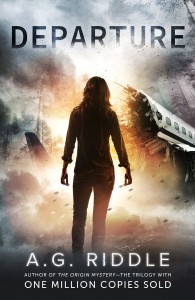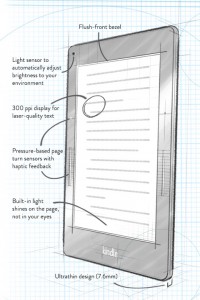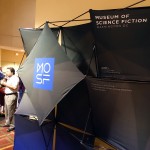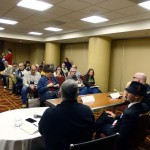 Annihilation takes a little while to sink its teeth into you, but once it does it won’t let go.The good news is that it’s a beautifully written, compelling novel. The bad news is that the compulsion is to experience dread, dissonance and distrust.
Annihilation takes a little while to sink its teeth into you, but once it does it won’t let go.The good news is that it’s a beautifully written, compelling novel. The bad news is that the compulsion is to experience dread, dissonance and distrust.
In Annihilation, part one of Jeff VanderMeer’s Southern Reach trilogy, we follow the twelfth expedition into the region described as Area X, with a quartet of women we only know by their functional labels, the psychologist, the surveyor, the anthropologist, and the biologist, who is also our narrator.
We are assured that horrible, or inexplicable, or banal things happened to the members of the first eleven expeditions, from mass suicide to turning up mysteriously back home with unreasonably placid demeanors.
Except that trying to ignore a region like this is about as easy as ignoring a sore tooth, you’d really wonder why they chose to make it an even dozen misadventures.
There are many genres within science fiction and fantasy, and weird is a perfectly legitimate one. Just not my cup of tea, when it’s all the story offers.
I embarked on the expedition into Annihilation hopeful to find some sort of lost world adventure, but about a quarter of the way through the book, about the place where the biologist, infected with spores from the tower/tunnel and the surveyor are descending into its depths while the psychologist “guards” the entrance, I decided it just wasn’t my thing. Then I realized it wasn’t going to let me go without reading to the end.
The writing is in the “found journal” style that leaves the author open to killing off the narrator, and were it not for the occasional mention of cell phones and other trinkets of modernity, it could have been dated from the time of Arne Saknussemm, on his journey into the bowels of the earth. Clearly it’s Verne, whose sensibilities were such that he wrote stories that fostered a sense of adventure and discovery, rather than the aim of this narrative, which left me both the narrator and myself with a general sense of unease and ennui.
Now, I know I’m not in good company on this, and I respect that. The worthies (and I say this with some measure of sincerity) at Amazon deemed to make it an Amazon Best Book of the Month when it came out. The New York Times Booklist (magazine) designated it a starred review. Slate adored it. iO9 doted upon it, offering up; “In the best tradition of weird fiction, VanderMeer is evoking the sense of awe and terror that nature brings out in us.” Well, yes. that’s pretty spot on, but I’m more of a sense of wonder type, but I’m pretty flexible in my wonders.
And of course, it’s a Nebula Award nominee, which is why I picked it up in the first place. Unfortunately, it’s more weird than science fictional, which is why it bothers me. Annoyingly, I’m aware that bothering me counts as a win for the book.
Not that I don’t like a certain amount of weirdness. Really, most of my best friends are weird. The problem with tales like this is that weird is all you get, and it’s just not enough for me. Clearly this book has an audience, or it wouldn’t have made it to be a Nebula nominee, so congrats to VanderMeer. If it should win, I won’t feel that an injustice has been served on my literary sensibilities, because there’s room in the genre for more than one sort. In fact, I’m pretty sure I get the attraction here. I just don’t have the desire to unsettle myself sufficiently to appreciate the author’s talent.
I think I’ll go read some Verne.
Links / References
- Project Gutenberg; A JOURNEY TO THE CENTRE OF THE EARTH By Jules Verne; http://www.gutenberg.org/files/18857/18857-h/18857-h.htm





























